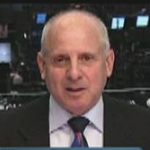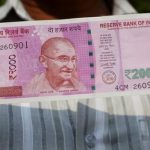
A different investment world. Financial Thought Leader, James Grant, Editor of Grant’s Interest Rate Observer declares the 35 year bull market over and sees few opportunities to replace it. WEALTHTRACK broadcast on January 27, 2017.
 01/28/2017 - James Grant: It’s A Different Investment World Now
01/28/2017 - James Grant: It’s A Different Investment World Now
A different investment world. Financial Thought Leader, James Grant, Editor of Grant’s Interest Rate Observer declares the 35 year bull market over and sees few opportunities to replace it. WEALTHTRACK broadcast on January 27, 2017.
 01/28/2017 - The Roundtable Insight – Yra Harris Emphasizes Keeping An Eye On Europe
01/28/2017 - The Roundtable Insight – Yra Harris Emphasizes Keeping An Eye On Europe
FRA is joined by Yra Harris to discuss Trump’s effect on the global market, along with Draghi’s influence coming from Europe.
Yra Harris is a recognized Trader with over 32 years of experience in all areas of commodity trading, with broad expertise in cash currency markets. He has a proven track record of successful trading through combination of technical work and fundamental analysis of global trends; historically based analysis on global hot money flows. He is recognized by peers as an authority on foreign currency. In addition to this he has Specific measurable achievements as a member of the Board of the Chicago Mercantile Exchange (CME). Yra Harris is a Registered Commodity Trading Advisor, Registered Floor Broker and a Registered Pool Operator. He is a regular guest analysis on Currency & Global Interest Markets on Bloomberg and CNBC. He has been interviewed for various articles in Der Spiegel, Japanese television and print media, and is a frequent commentator on Canadian Financial Network, ROB TV.
TRUMP’S EFFECT ON THE MARKETS
This is going to be a slow, grinding process. There’s a lot of things to dislike about Trump, but he’s showing some real leadership in that he’s willing to go out of a lot of boxes. He wants to renegotiate NAFTA so relations with Mexico and Canada would be stronger after it takes place. The Mexican Peso, by all fundamentals, is one of the most undervalued assets in the world. The currency has depreciated 700% since the beginning of NAFTA.
When you look at the value of the Peso, outside of an absolutely closing of the border, you’ll shut down America. The same goes for Canada. The Mexicans have tried to hold their currency, they don’t like the weakness of their currency, but the world has done it. Anyone who has emerging market exposure goes to sell the Peso because it’s the most liquid, but that’s driven it down to 21.28 Pesos to the Dollar. For a currency to devalue that much, it has to be choking on debt or going through phenomenal inflation.
With Canada being a member of NAFTA as well, there’s a strong dependence of Canada on the US economy. The Canadian dollar, weak as it is compared to eight years ago, is still medium.
Trump’s a negotiator, so if went in and spoke to the automobile manufacturers and said “This is what I want from you, what do you want from me?”, they must’ve replied by saying that the Japanese Yen is incredibly weak. It was a cry saying they want relief from this. There’s a lot of short position on the Japanese Yen out there. To couple with that, the Australians approached the Japanese saying they should carry on with PPP regardless, and the Japanese disagreed.
There can’t be a positive course because the world is at odds. United States will move unilaterally to depreciate the Dollar. Trump operates on a give-get basis, and doesn’t hold to international deals like avoiding currency intervention. A lot of Japan’s monetary policy that resulted in financial repression was done to drive currency values lower.
TRADE ARRANGEMENTS
Mexico has a debt on imports, which is basically a surcharge. The US is the opposite because we tax exports for revenue and allow imports. Global supply chains are so deep now. A lot of fields are changing. Trump does want to do a reset on the global order. The entire global order has been a burden on the American middle class especially. It was good for them in the 50s and 60s when the US dominated the world stage, but that was when the US had no competition. It’s harder now because there’s more global competition, but the US is still funding that. And that’s what Trump is saying.
Draghi told the German people that they’ve gotten a lot of benefits from being in the EU, and that may be true but they’re running into the same problem that Clinton and the Democrats had: Trump raised the question of “who’s benefited?” The average German citizen has been repressed to pay for this. They’ve borne the burden. They walked into this; German people do not live on debt, with the lowest home ownership of any developed market because people don’t borrow money to buy things. They’re savers, and whole basis of Financial Repression Authority is talking about people who are financially repressed and the central banks decide to bail out. There’s a momentum to this; this is about what’s going on, and the Germans can’t do anything because they don’t control their currency and they don’t control the bank.
CENTRAL BANK ACTIVITIES AND COORDINATION
Coordination will break down because they’re all in different places. Kuroda’s put the Japanese in a bad spot. What do they do now? The curve has now started to steepen in Japan so they’re on this mission where they’re moving on with QE which weakens the currency. They’re going to have a problem. With the ECB, if Draghi were to pull back the QE, rates would rise dramatically in Italy, Spain, and Portugal. There are some serious issues with this and you can see the Fed going their own way now because they’re looking to fight a battle about exorbitant fiscal stimulus and suddenly they go hawkish. If the Fed were to move aggressively, Trump will respond by intervening on the Dollar.
The effect on the 10 year bond is unknown. If the Dollar rallies, everyone loves America again. If the US intervenes, the 10 year yield will go higher because people will start selling Dollar assets. It’s a very tough question and we’ll have to watch the Fed closely and economic fundamentals, but the curves are steepening all over the world. People are selling in the long run in anticipation of improved global growth.
Gold is good because the central banks have been married to this zero to negative interest rate, and they don’t know what to do. If they’re seeing the panic in any way, that’s what gold is good for. It’s amazing that gold is still up there when equity markets are rallying.
Abstract by: Annie Zhou <a2zhou@ryerson.ca>
LINK HERE to download the MP3 PODCAST
 01/20/2017 - The Roundtable Insight: Alasdair Macleod & Jayant Bhandari On The Impact Of Trump, China & India
01/20/2017 - The Roundtable Insight: Alasdair Macleod & Jayant Bhandari On The Impact Of Trump, China & India
FRA is joined by Alasdair Macleod and Jayant Bhandari on discussing India’s war on cash and the impact of China and Trump on the world.
Alasdair Macleod writes for Goldmoney. He has been a celebrated stockbroker and Member of the London Stock Exchange for over four decades. His experience encompasses equity and bond markets, fund management, corporate finance and investment strategy.
Jayant Bhandari is constantly traveling the world looking for investment opportunities, particularly in the natural resource sector. He advises institutional investors about his finds. Earlier, he worked for six years with US Global Investors (San Antonio, Texas), a boutique natural resource investment firm, and for one year with Casey Research. Before emigrating from India, he started and ran Indian subsidiary operations of two European companies. He still travels multiple times a year to India. He is an MBA from Manchester Business School (UK) and B. Engineering from SGSITS (India). He has written on political, economic and cultural issues for the Liberty magazine, the Mises Institute (USA), Mises Institute (Canada), Casey Research, International Man, Mining Journal, Zero Hedge, Lew Rockwell, the Dollar Vigilante, Fraser Institute, Le Québécois Libre, Mauldin Economics, Northern Miner, Mining Markets etc. He is a contributing editor of the Liberty magazine. He runs a yearly seminar in Vancouver titled Capitalism & Morality.
DRIFT INTO FASCISM
Virtually every town and city is covered in cameras and they can literally follow you everywhere. The labour constitution clause was the desire to take into public ownership the means of production – in other words, a communist approach. Everyone’s going that way, not just in the advanced western nations. The central banks basically want to do away with cash. They’re looking forward to the financial technology revolution as means of replacing cash payments. It’s just that India jumped the gun on it. It’s interesting that we’ve had a mini rebellion with Brexit and the election of Trump. The authorities are having difficulties pushing through their plan, but it’s happening.
If you do away with cash, the effect is that people will trust the Rupee less. To an extent this is reflected in reports of unofficial gold prices, showing huge premiums. Which clash with official reports where people have to buy their gold through the market and be charged extra tax. The whole thing is a horrendous mess.
WHAT’S HAPPENING IN INDIA – WAR ON CASH UPDATE
There continue to be problems. India simply cannot work without cash. The banks have taken all the notes back but they have not released new notes to the public. The economy has stagnated; millions of small companies are failing, hundreds of millions of people are losing their jobs, and the economy is in deep trouble. This is a country where about a billion people don’t have internet connection, and people who do find it unreliable. Banks are very unethical and there is no electronic system. The cashless approach will completely fail but it will be very painful.
The IMF came out with a report saying the Indian economy will slow down from 7.6% to 6.6% growth rate, but that’s not true. There is negative growth in the country and everyone is claiming that their business has fallen from 20-80%. The IMF will likely revise that estimate over the next few months. People are avoiding anything other than necessities, but even there hospitals are empty and people are not buying food. Farmers have to dump their food supplies; they’re discontinuing farming, and food prices are down 25-75%. This is a huge gain for the middle class, but if farmers go bankrupt and don’t farm for the next cycle you won’t have food in a few months’ time. This is extremely chaotic for the economy.
There is also the issue of the value of the Rupee compared to the USD. India is among the most expensive of the poor countries, which means the Rupee is overvalued. It will likely lose value, and this will have an additional negative effect on the economy.
THE THREAT OF CURRENCY COLLAPSE
Business being down 20-80% is immensely serious, and we could expect GDP to fall by a third over the next year. There will definitely be a food price inflation, and inflation will follow as the central bank will make sure there is money available and funneled into the market. The people at the bottom of the chain will be impoverished, and the effect is that the Rupee is headed down.
In a cash economy, the rate at which a cash currency loses its purchasing power is largely governed by the availability of cash. As the cash loses purchasing power you need to produce more of it to meet the demand created by the collapsing of purchasing power. This puts a break on the rate at which the purchasing power goes down in a cash economy. If you make it a purely electronic money economy, you can lose that purchasing power overnight because there is no break on the availability of the money through an electronic currency system.
The people who are suffering the most are those that work in the informal economy, and the government doesn’t care about them because they’re below the tax bracket anyway and don’t pay their taxes. It’s very likely that some sort of famine might start in India, and this is something the world doesn’t understand yet.
A MOVE TOWARD CASHLESS SOCIETY?
This is the direction all central banks in Southeast Asia are travelling in. These economies are running on two speeds: the cities, similar to the ones in the west, where people need infrastructure and pay taxes, and then there’s the rest of the country where the poor live. People just use cash because they have no other means of paying for things. From the point of view of the central bank, they see this two speed economy and think that if they can get the economy that isn’t recorded on the books, their economic growth will appear quicker than anyone expects.
The only thing good that might come out of India is that it might make the governments elsewhere think of it before they take similar actions.
STAGFLATION IN NORTH AMERICA
If you look at what’s going on with bank lending, it’s clear that it’s been expanding since 2006. It’s still running over trend, which indicates the US economy is healthy. Trump is going to inject a huge amount of reflation on top of an economy in the stage of the credit cycle where it is already expanding. That will rapidly lead to overheating.
His intended expansion through infrastructure spending and lower taxes comes at a time where China has been stockpiling industrial raw materials so they can discharge their five year plan. China wants to make their economy more technology and service driven, and to bring about an industrial revolution throughout Asia. One way or another, China has cornered a lot of industrial materials and energy to execute their plans. Trump wants to do the same, and the effect on commodity prices is to drive them higher. This is going to bring inflation pressures into American consumer prices, and prices elsewhere.
How far can the Fed raise rates to take control over price inflation? Not very far, because the Fed funds rate of no more than 2.5% will be enough to topple the economy.
There will be a huge amount of investment happening in the US, and China is staying aggressively on the development path. These are very good signs for the future of commodity prices. There is a possibility that Trump will be able to reduce regulations on businesses, which will have deflationary effects on society.
CHINA: BITCOIN AND CREDIT BUBBLE
The authorities don’t like BitCoin. The Americans don’t like it, and the Chinese authorities would rather people use gold as an alternative. But BitCoin seems to be immensely popular with speculators, and is in a speculative bubble right now. BitCoin is too volatile to be practical as money. The only sound alternatives to fiat currencies are gold and silver, which will come back as fiat currencies collapse. The problem with BitCoin is that it has no inherent value. The pricing is based on pure speculation, and is backed by speculative pressures.
We tend to overemphasize the risk of a Chinese credit bubble collapse, because the Chinese government owns the banks and any collapse of that sort gets absorbed by the system. This is a very situation than in the west. While there’s a lot of debt in that economy, the sheer fact that it’s a very productive economy makes it able to go over these humps as time passes.
Abstract by: Annie Zhou <a2zhou@ryerson.ca>
 01/18/2017 - McAlvany Commentary: Russell Napier On Financial Repression
01/18/2017 - McAlvany Commentary: Russell Napier On Financial Repression
Russell Napier: Gold Will Rise With the Dollar
Financial Repression will increase, just ask Carmen Reinhart, Euro & Yen will devalue as Dollar and Gold will rise, Societies that feel a threat to their private property buy gold. You can find Russell’s Book “Anatomy of the Bear: Lessons from Wall Street’s four great bottoms.”
 01/17/2017 - Sprott’s Rick Rule: The U.S. Will Devalue Debt By Devaluing The Dollar
01/17/2017 - Sprott’s Rick Rule: The U.S. Will Devalue Debt By Devaluing The Dollar
Resource investment expert Rick Rule is asking one very important question about a mountain of U.S. debt? Rule asks, “How on earth are we going to resolve $120 trillion on balance sheet and off balance sheet liabilities before we consider state and local debt and underfunded pensions? .. I think we will have a series of unofficial defaults where we devalue the net present value of the obligations, which is a different way of saying we devalue the . . . currency, gradually like we did in the 1970s. I think that will have the same impact on gold and silver prices.”
 01/17/2017 - From Our Archives: Daniel Amerman Gives A Tutorial On Financial Repression
01/17/2017 - From Our Archives: Daniel Amerman Gives A Tutorial On Financial Repression
 01/17/2017 - Yra Harris: Financial Repression Is Leveraging The Public Treasury To Maintain The “Animal Spirits” Of Crony Capitalism
01/17/2017 - Yra Harris: Financial Repression Is Leveraging The Public Treasury To Maintain The “Animal Spirits” Of Crony Capitalism
Yra Harris: “The conspiracy against the public has been the financial repression of the global middle class in an effort to bail out those who have attached themselves to the public treasury to maintain the ‘animal spirits’ of crony capitalism.”
 01/13/2017 - The Roundtable Insight – Incrementum’s Ronald-Peter Stoeferle On The 2017 Outlook
01/13/2017 - The Roundtable Insight – Incrementum’s Ronald-Peter Stoeferle On The 2017 Outlook
FRA is joined by Ronald-Peter Stoeferle in discussing his predictions for the next year, along with his thoughts on the state of the global monetary system.
Ronald is a managing partner and investment manager of Incrementum AG. Together with Mark Valek, he manages a global macro fund which is based on the principles of the Austrian School of Economics. Previously he worked seven years for Vienna-based Erste Group Bank where he began writing extensive reports on gold and oil. His benchmark reports called ‘In GOLD we TRUST’ drew international coverage on CNBC, Bloomberg, the Wall Street Journal and the Financial Times. Next to his work at Incrementum he is a lecturing member of the Institute of Value based Economics and lecturer at the Academy of the Vienna Stock Exchange.
GOING INTO THE NEW YEAR
It’s all about politics. We’re seeing quite a lot of drastic changes last year, but in 2017 political uncertainties will most likely come from the Eurozone where we’ve got elections in France, Germany, and the Netherlands. There will be much more surprises coming in, politically. It’s going to be an interesting year, and the interplay between inflation and deflation will be crucial for investors. Inflation numbers and expectations were picking up significantly, while the enormous strength in USD and the major correction in bond markets were very deflationary. There might be some surprises on the deflationary side going forward, though the mainstream is concerned about inflation.
At the end of the zero interest rate trap is going to be inflation. Every fiat money system in history collapsed because of inflation, not deflation, but we can imagine there might be some sort of deflationary shock. And central bankers will act extremely inflationary and this might be the tipping point where people will lose trust in fiat money.
Gold is in the very early stage of of a bull market, and now we’re at the beginning of the public participation phase and gold will rise in purchasing power verses fiat currencies. Already since the beginning of the year, gold is up 3% in dollar terms. The fact that the market became very bearish on gold in the last weeks is a good sign. It’s going to be a great year for gold, but even more bullish on silver.
INFLATION ON THE MONETARY SYSTEM
We all know that at the moment the US dollar is a leading global currency. Normally strength in the USD will affect emerging markets as the weakest links first, and we’re seeing enormous stress in Mexico, Turkey, Brazil and so on, and this will have effects. If the Fed delivered more rate hikes the dollar will go through the roof, and the dollar is the most important driver that one should follow in the market at the moment.
We may be having a transition from very low interest rates to forced inflation. This is going to go hand in hand with social upheaval and more socialist politicians because 4% real inflation is going to hurt the average person the most. The rich don’t care because they’ve diversified their real assets, but for the average person this is going to be a real problem, and this is going to be the point in time where things really get ugly.
The root cause comes from our central banks and the monetary system. Where the money is created first, those regions prosper from. Normally this means financial hubs like London and New York, where people really profit from monetary inflation. This is why in big cities people mostly voted for the status quo while people in rural areas that suffer from monetary inflation voted for change.
Sooner or later in the US there might be a recession.
GLOBAL STAGFLATION
Stagflation is something we should focus on, and is a very realistic scenario. Inflation rates, due to the base effect, may rise 3-4% in the next few months. If economic activity cools off, which is what we’re seeing, then we’re already in stagflation! People should prepare for stagflation, and what works is precious metals.
Stocks in general leave the comfort zone at inflation rates of 3%. Once we get over that level it’s a negative environment for stocks. As a rule, higher inflation rates are not positive for stocks in general.
CHINA’S EFFECT ON THE MACRO VIEW
Perhaps their credit bubble already burst. There’s very aggressive fiscal stimulus in China, and credit growth only came from state owned banks. At the moment capital controls are slowly being put in place, and BitCoin is going crazy because of China, and the RMB is at a seven year low. There’s quite a lot of stress in China, and this will have enormous effects on commodity markets and precious metals.
There are many similarities between BitCoin and gold, but they are competing currencies. There’s so much going on in the crypto-currency space, and a technological revolution will be happening. Our whole world is digitized, so why should that end with money?
It’s not either BitCoin or gold; there’s room for both. The worst financial repression will become, the more people will pile into BitCoin or physical gold.
Companies might stop buying their own stock, and this would have enormous consequences for the equity market. In the corporate world, we’ve been in an earnings recessions for four or five quarters now, and some economic factors already show us that the economy isn’t as well off as people would suggest. Equity markets are overpriced, but for market participants right now greed is much more important than fear. It’s hard to anticipate reasons for such a shift, but it’ll happen very quickly.
GENERIC ASSET CLASSES TO CONSIDER
No one’s talking about business models or valuations anymore; everyone’s only trying to anticipate what central banks might do next. This shows how dependent we are on cheap liquidity and central bank bubble. In this environment you should protect your downside and diversify, and find ways to profit from falling markets.
There’s plenty of opportunities, like in silver and uranium, and if institutional investors start buying into the silver space it’ll have enormous effect as it’s a tiny market. The biggest threat is definitely from China, so one has to be cautious and follow the signs coming out of China, but you should take those signs with a grain of salt.
We’re seeing huge volatilities in emerging market currencies, and this will have global effects. Normally crises start from the periphery. Before every major market crash we’ve actually seen rising rates and rising inflation rates, and we’re seeing both right now. There may not be a crash, but the odds are much higher than the market is seeing.
Abstract by: Annie Zhou <a2zhou@ryerson.ca>
 01/12/2017 - China Employing Financial Repression Obfuscation And Secrecy
01/12/2017 - China Employing Financial Repression Obfuscation And Secrecy
To “Prevent Public Panic”, Beijing Orders Banks To Keep Capital Controls Secret
Article: “China is so concerned about the ongoing surge in capital outflows that its forex regulator, SAFE, has taken the unprecedented step of ordering banks to keep its instructions about curbing capital outflows secret and also to ensure that research analysts do not publish any negative views about the yuan according to Reuters. According to bankers from local and foreign banks, both demands are seen as an attempt by the authorities to prevent alarm that could trigger further declines in the yuan .. China has implemented full blown capital controls, without wanting its population to know it has done so, which is understandable: fear of the unknown would lead to panic, would lead to more selling, and more panic and so on. But what we find delightfully ironic is that China is cracking down on the internationalization of its currency, just months after the IMF made the Yuan a fully ‘respected’ member of the SDR – a token of how ‘liberalized’ the currency is.”
 01/12/2017 - McAlvany Report: Capital Controls And Financial Repression The New Tools Of Captivity
01/12/2017 - McAlvany Report: Capital Controls And Financial Repression The New Tools Of Captivity
 01/10/2017 - Mish Shedlock On The Fallacy Of Government Free Money Programs
01/10/2017 - Mish Shedlock On The Fallacy Of Government Free Money Programs
Mish Shedlock: “‘Free Money’ experiments are underway in several places: Canada, California, and Finland .. The alleged studies are all fatally flawed because they do not scale. It’s one thing to give a few hundred people or a few thousand people free money, but it’s another thing to scale the experiment across an entire nation .. Economic illiterates have latched on to the free money scheme. If you pay people to do nothing, there will be masses of people doing nothing and getting paid for doing nothing .. The idea that the government needs to redistribute money to make things affordable is ridiculous in both theory and practice .. Thousands of affordable home programs, tuition programs, and Obamacare prove the ridiculousness of the concept .. If the Fed and governments would just get the hell out of the way, prices would naturally find the right level .. But no! The Fed does not want prices to go down, and when prices go up, economic illiterates scream for ‘living wages’, attacking a symptom of the problem .. The problem is not insufficient wages. The problem is fractional reserve lending coupled with a Fed hell-bent on creating inflation in a technologically deflationary world .. Misguided minimum wages hikes, public unions, and political corruption all exacerbate the problem .. Economically illiterate writers bemoan deflation, as do most economists, central banks, and academia. The final irony in this ridiculous mix is central bank policies stimulate the massive wealth inequality all of the above rail about .. It would behoove ‘living wage’ advocates to consider the possibility the real problem is central bank sponsored inflation, not a failure of government to provide a ‘living wage’ to those doing nothing.”
LINK HERE to the commentary
 01/10/2017 - Martin Armstrong On Monetary Devaluations & Cancellations – India Is Repeating History
01/10/2017 - Martin Armstrong On Monetary Devaluations & Cancellations – India Is Repeating History
Martin Armstrong: “Since ancient times, many times those in power have cancelled their money supply to make a profit or collect taxes by force .. Three literary passages from antiquity identify the reminting of coinage in ancient Greece that had nothing to do with recycling of worn coinage. The government did what India did, but instead of moving to electronic money, they devalued outstanding coins and recalled them for restriking regardless of their condition, specifically as a means of raising revenue for the state .. Dionysios, we are told ([Arist.] Oec. 1349b27–33), and Leukon (Polyaenus, Strat.6.9.1), recalled in the existing coinage and restruck (or countermarked) it with a new type (character), thereby doubling its original value. This was an effort to cover the expenses of the state by increasing the money supply. Dionysios recalled the coinage and imposed the penalty of death for noncompliance. Leukon followed Hippias and simply demonetized all existing coinage .. Various Japanese emperors engaged in similar tactics but did not recall the existing coinage. Each new emperor just devalued all outstanding coinage to 10% of its value and issued their own coinage for profit. This practice led the population to use Chinese coins and rice. Eventually, nobody would accept a Japanese coin because of this practice. Thus, the end result was that Japan lost the ability to issue coins at all for 600 years after 958 AD. This is why, as we move forward, it will be best to hold assets out of banks and out of currency .. The safest asset may simply be blue chip stocks for they would never make it illegal to own corporations unless you had a full-fledged leftist revolution that seized all private assets as in a communist revolution. That risk would naturally alter everything once again.”
 01/09/2017 - Russell Napier On Financial Repression: “You Are Not Supposed To Know It Is Happening”
01/09/2017 - Russell Napier On Financial Repression: “You Are Not Supposed To Know It Is Happening”
Financial Repression – “Put inflation above interest rates and to maintain them there” .. it’s being done by the central banks, and it could be forced by financial institutions upon investors by governments .. it’s all about governments trying to maintain & reduce the burden of government debt .. but now the need to repress is higher than after World War II, since there is also a lot of private debt as well .. “we are at the very early stages of this [financial repression]” ..
 01/09/2017 - Dr. Marc Faber: Federal Reserve Likely To Launch QE4 In 2017
01/09/2017 - Dr. Marc Faber: Federal Reserve Likely To Launch QE4 In 2017
“Let’s say the Fed realizes that the deficits for the U.S. go up and that interest rates increase and that the economy slows down, do you really think that they will increase the Fed funds rate three times in 2017? Never. What they will aim at, then, is to essentially bring interest rates down, especially if by then the dollar is still strong. And so they will probably launch QE4 in 2017. I think that will be a surprise for many people — not for me, but for many people that will be a surprise.”
Also recommend watching the below video interview: Dr. Marc Faber sees emerging markets as outperforming the U.S., the U.S. Treasury Bond Market likely to correct (go higher) in the short term, & the U.S.$ likely peaking in 2017 .. sees the world’s big central banks – Federal Reserve, Bank of England, ECB and Bank of Japan – as coordinating monetary policies together on a global basis.
 01/07/2017 - The Roundtable Insight – Update On India’s War On Cash From Jayant Bhandari
01/07/2017 - The Roundtable Insight – Update On India’s War On Cash From Jayant Bhandari
FRA is joined by Jayant Bhandari in discussing the continued effects of India’s war on cash on the Indian economy.
Jayant Bhandari is constantly traveling the world looking for investment opportunities, particularly in the natural resource sector. He advises institutional investors about his finds. Earlier, he worked for six years with US Global Investors (San Antonio, Texas), a boutique natural resource investment firm, and for one year with Casey Research. Before emigrating from India, he started and ran Indian subsidiary operations of two European companies. He still travels multiple times a year to India. He is an MBA from Manchester Business School (UK) and B. Engineering from SGSITS (India). He has written on political, economic and cultural issues for the Liberty magazine, the Mises Institute (USA), Mises Institute (Canada), Casey Research, International Man, Mining Journal, Zero Hedge, Lew Rockwell, the Dollar Vigilante, Fraser Institute, Le Québécois Libre, Mauldin Economics, Northern Miner, Mining Markets etc. He is a contributing editor of the Liberty magazine. He runs a yearly seminar in Vancouver titled Capitalism & Morality.
INDIA’S WAR ON CASH
With respect to Alasdair Macleod’s recent writings, India will completely fail in trying to making this country cashless. They don’t really have the competency, it’s a technologically backward country, and almost a billion people do not have internet or telephone connections, even in big cities. Electronic transactions won’t be able to work.
This is a country of GDP per capita of $1700, the government has done absolutely no planning, and in the last 55 days since they announced demonetization, they have released 70 notifications of changes. The government has done no planning. All they have done is print two different bank notes, and they are extremely badly printed, with errors and poor quality paper and ink. Imagine how incompetent the Indian government must be, that they can’t even print in a printing press properly.
The whole situation is absolutely crazy, and the government is incredibly incompetent.
WHAT’S HAPPENING IN THE ECONOMY
There have been reports showing how economic activity is beginning to fall precipitously. Things are cheaper than they were two months ago, and the reason is that poor people don’t have the cash to buy anything. Remember that 80% of this country is poor, and this is the population that works in the informal economy. They don’t have jobs and can’t buy food. Food prices have fallen and the middle class is happy, but these are the people who are the backbone of this country. When they lose jobs, they will riot and create crime, and at the end of the day the formal economy sits on the back of the informal economy. These people earn $1-2 a day, and they can’t make banking part of their lifestyle.
70-80% of India’s population will go half-bankrupt. When the next cycle starts, farmers won’t have the money to plant seeds anymore, which means that food production will fall in the next few months and food prices will go up. This hits the middle class and the formal economy, and the formal economy is already very badly hit. People are sitting on their money because they can’t do anything with their money since government tax collectors are rapacious and corrupt. There’s so much anxiety and fear among small businesses and savers.
CURRENCY PROBLEMS
There likely won’t be a currency collapse because the government has a monopoly on currency and all the money in your bank account is frozen. The biggest problem is that one person has a monopoly on the economic blood circulation of the society, and he has completely destroyed it. The economy will suffer, and socially and culturally this society will face horrendous problems going forward.
India has always been a totalitarian country, but it’s increasingly become more and more totalitarian over the last seven years. We are reaching the peak where this will become completely totalitarian, and the only result will be massive chaos and problems in the society and possibly the disintegration of India.
The stock market is going down in Rupee and Dollar terms, but the Rupee is continuing to fall. But if you’re invested in this stock market you can’t really take your money out. The reality is that when foreign investors understand what India is doing, they might stop bringing their money into the country and the result may be that the stock market will fall extremely quickly. India has been a negative yielding economy forever and now that they have destroyed the economic backbone of the country, the stock market can and should fall going forward.
A lot of bartering is starting to happen in rural places where economies aren’t very complex. The transaction costs for bartering are huge, and create massive anomalies in the economy. It doesn’t work in more sophisticated environment where you are doing proper business and exchanging modern goods. Hopefully people will start exchanging gold in place of cash for bigger transactions, because governments’ monopoly on cash is disastrous and extraordinarily risky for any society.
EFFECTS ON GOLD
There is a chronic fear in the society and raids are happening. The government has told people that anyone owning more than 500g of gold might be assessed for tax. The problem is that you can’t prove to the government that you own gold that has been passed down or gifted. This boils down to paying unnecessary taxes and a huge amount of bribes. Corruption has skyrocketed in the last two months because this is now a police state and in a police state you don’t question the police.
The price of gold went up to $3000/oz a few days after the demonetization was announced, and now has fallen to the international rate. The street price is 10% more than the international price because there’s a 10% customs duty on imports of gold. Most of the gold come through smuggling channels, and these smugglers make a massive amount of money.
BitCoin or something similar will likely be important tin convincing Indian to move their money out of the country. The reality is that Indians have been very inward looking. But now for the first time people are considering how to move their money and gold out of the country. Governments will almost certainly institute capital controls and put restrictions on gold ownership sooner rather than later. If they don’t, people will buy gold with credit or move their money abroad using foreign exchange channels. The government will remove those possibilities in the near future.
Historically people have moved their money into silver and farmland, and Indians will do that to protect their wealth from the government.
India was never growing at 7.5%. The Indian economy is stagnating and this country continues to be irrational and tribal. They haven’t been using the technology they’ve gotten from the west, food habits have gone bad, and disease is growing rapidly. There’s a huge amount of chaos, and will likely disintegrate in a few years’ time.
GLOBAL PARALLELS
Similar things are happening in the rest of South Asian countries and the Middle East. Much worse is happening in Africa. These 2.5B people are in chaos right now. All of these people are tribal societies with a natural organic inclination to become tribal again. A lot of these countries will change their shape over the next few decades and go through major problems.
The problems of the emerging markets – particularly the South Asia, Middle East and Africa, is extremely high and bad.
Abstract by: Annie Zhou <a2zhou@ryerson.ca>
 01/06/2017 - The Roundtable Insight – Peter Boockvar And Yra Harris On The 2017 Outlook
01/06/2017 - The Roundtable Insight – Peter Boockvar And Yra Harris On The 2017 Outlook
FRA is joined by Peter Boockvar and Yra Harris in discussing their expectations for 2017, along with predictions for Europe and the global debt crisis.
Yra Harris is a recognized Trader with over 32 years of experience in all areas of commodity trading, with broad expertise in cash currency markets. He has a proven track record of successful trading through combination of technical work and fundamental analysis of global trends; historically based analysis on global hot money flows. He is recognized by peers as an authority on foreign currency. In addition to this he has Specific measurable achievements as a member of the Board of the Chicago Mercantile Exchange (CME). Yra Harris is a Registered Commodity Trading Advisor, Registered Floor Broker and a Registered Pool Operator. He is a regular guest analysis on Currency & Global Interest Markets on Bloomberg and CNBC. He has been interviewed for various articles in Der Spiegel, Japanese television and print media, and is a frequent commentator on Canadian Financial Network, ROB TV.
Prior to joining The Lindsey Group, Peter spent a brief time at Omega Advisors, a New York based hedge fund, as a macro analyst and portfolio manager. Before this, he was an employee and partner at Miller Tabak + Co for 18 years where he was recently the equity strategist and a portfolio manager with Miller Tabak Advisors. He joined Donaldson, Lufkin and Jenrette in 1992 in their corporate bond research department as a junior analyst. He is also president of OCLI, LLC and OCLI2, LLC, farmland real estate investment funds. He is a CNBC contributor and appears regularly on their network. Peter graduated Magna Cum Laude with a B.B.A. in Finance from George Washington University. Check out Peter’s new site at www.boockreport.com.
2017 OUTLOOK
There’s going to be this tug-of-war over Trump and the tax and regulatory policies he hopes to pass and initiate, and financial conditions that will continue to tighten in the interest rate perspective. Since November, the focus has been on the positives of Trump, and when people start looking at the details, people will have to acknowledge that what got us to record highs in the stock market was QE and zero interest rates. At some point we’ll have to shift back to interest rates and the uncertainty of what Trump will pass and the offsets in terms of tax policy.
What you failed to see materialize was a lot of year-end tax selling, except for losses. This is not a Reagan phenomenon. There are so many vast differences, mainly the debt load piled on the US and global economy. For every 100 basis point increase in interest expense is $470B. Despite all this excitement over the corporate tax income cut, there’s not enough attention being paid to the potential offsets. There’s a potential border adjustment tax, and a credit addicted economy where they may be taking away the deductibility of future interest expense.
Debt has to be serviced. It’s not all coming due in this year, but we don’t know how much of it is floating. If Trump changes the tax code, a lot of people will see when interest deductions will not be part of the equation anymore, just how great the impact will be on corporate earnings. If Trump doesn’t get these offsets, the corporate tax rate isn’t going to make it to 15-20%. People are going to start digging into the details of the Trump plan, and they’re going to realize there’s no free lunch here. Because of the size and depth of the deficit, he can’t just cut taxes. There’s going to be an offset, and that’s what people have to start paying attention to.
FISCAL DEBT DRIVING US DEBT
Entitlement obligations are now at 10% of GDP and rising. This trend is expected to escalate, give then trillions of unfunded liabilities obligated toward entitlement. On the private side, corporations have taken out about $620B for the share buybacks, and if rising interest rates begin to reverse that trend, that’s a big factor that could have the markets going in the other direction.
We’re seeing some political maneuvering from Trump, who’s controlling his narrative. We’re about to see the difference between campaigning and governing, and the reality of the latter.
KEY THEMES GOING INTO THE NEW YEAR
Rising inflation; slowing growth
US growth is still around the 2% level, but the question for 2017 is how much of the positive sentiment numbers that we’re seeing in manufacturing etc. is hopes and how much is actual improvement in business activities. Right now it’s still hopes, and GDP for 2017 is still going to be around the 2% level and we’re not going to see the benefits of Trump until 2018. Inflation levels are moving higher, partly due to the rate of change of the base effects of the decline in energy, on top of high prices of medical care and rent. We’re seeing inflation expectations rise in Europe and the US, and it gets down to how the Fed responds to that.
Interest rates may mug the markets and trump over reality. What got us here was QE, negative interest rates, and zero interest rates in the US. To think that that can reverse with no pain, and somehow fiscal policy will offset that, is delusional.
THE PROBLEM OF GERMANY
The most important area is going to be the Euro. The only way out of some of the mess that they’re in is for Germany to have higher inflation. Right now with the Deutschmark 10% lower, the German current account surplus is about 8.5% of GDP. And yet, there’s nothing they can do about it because Germany is tied into this weak economic consortium, and they’re benefitting from it with phenomenal growth. The weaker the Euro goes, the more benefit Germany gets anyways. This is the year where Germany will have to decide if they’re going to be the transfer agent for all this growth. The operative question for this year is: who guarantees the ECB’s balance sheet?
We’re going to see firsthand the fallacy of demanding 2% inflation. Draghi doesn’t realize the epic bond bubble that he’s created. When you have huge amounts of negative yielding bonds in Europe and anemic levels of interest rates, and at the same time he wants 2% inflation. He’s desiring something that’s going to blow himself up.
As we head into 2017, Europe is going to become the centerpiece of the global financial system. It was a 50% decline in the value of Japanese and European banks that finally got them to realize flattening your yield curve into the ground is not a good idea. We are in the last inning of this last bout of monetary easing. People should not lose sight that interest rates, while still extraordinarily low, will move higher in the coming years and they should be prepared for that.
The markets are beginning to take some control. We’re going to get a rise in interest rates, and we have a very sensitive equity market.
As of 2015, of the profit pie, labour got the smaller share since WWII. That’s now beginning to shift, but there’s a lot of catch up on the labour side in terms of wages. While that’s good for earners, it’s not going to be good for corporate profits and companies will have to either slow down hiring or absorb those costs, or pass it on as higher prices.
EFFECTS OF CHINA
Right now non-performing loans in China are at 15-20% of GDP levels. China’s fallen into the same trap as the US, where it takes more and more debt to generate more GDP. This obsession with 6-7% growth has put them in this trap. The level of credit it takes to generate this level of GDP is out of their control. Growth will continue to slow, and debt will continue to become a big problem, but China’s one big black box in the sense that they could throw a lot of things under the rug and keep it there in some controlled way. It’s very difficult to forecast how Chinese authorities are going to manage that.
If China were to implode and let their currency depreciate, then we’d have to change our scenarios because that could send a tidal wave of disinflation around the globe and they’ll just be exporting regardless of price. Their problem is far too much capacity, and unless they can miraculously shift their economy from an export oriented to a phenomenally domestic economy, and that won’t be an easy task with that debt load. If China makes the transition, food will be an important thing.
COMMODITY MARKETS FOR THIS YEAR
Gold’s going to trade where real interest rates are, and if you think Janet Yellen will be slow in raising interest rates in response to a rise in inflation, then you should be positive in gold and silver. It’s handled two rate hikes and a 14 year high in the dollar, and it’s still a hundred off the lows of last year. That was the bottom in this bear market, and higher prices are expected. With respect to emerging markets, Brazil and South Korea have good political direction and should be positive.
If you see the German inflation numbers, it’s obvious they’re debasing their currency as a way to bail out the EU.
BitCoin is up 150% year over year. Over the last couple of months it’s doubled. There’s something very wrong that BitCoin is doubling like that while gold is suffering. There’s a push for a non-fiat type currency. Right now they’re buying BitCoin, but the difference between gold and BitCoin is nonsensical.
The ECB will become the big issue for the German elections come September.
Abstract by: Annie Zhou <a2zhou@ryerson.ca>
 01/05/2017 - Former Goldman Sachs Managing Director Nomi Prins On Artisanal Money To Support Government Debt
01/05/2017 - Former Goldman Sachs Managing Director Nomi Prins On Artisanal Money To Support Government Debt
“Why is this all happening? We had a financial crisis. It was scary for a lot of reasons. It was started in the United States. The biggest six banks in the United States have not really suffered in the wake of this financial crisis. The biggest six banks were at the core of the financial crisis are now 86% bigger in terms of assets, they are 43% bigger in terms of deposits. They have more tract in the derivatives market. They have more tract terms of the trading assets market. They are simply more powerful than they were before. They are continuing to be batted with settlements for crimes ranging from mortgage related crimes (the crux of the crisis), to libor scandals, to rigging foreign exchange to scamming customers. These crimes manifest in several ways, as we saw when Wells Fargo, one of the big six U.S banks, charged fees to its customers that they did not even have .. These banks have only been subsidized by, first our Federal Reserve and then internationally the cooperation of central banks – in a way that has never existed before. In the wake of our crisis, when the Federal Reserve brought money down to zero, they created Artisanal Money. It is not actually printing money. It does not require physical activity. It is the idea of creating money in all sorts of different ways to make its availability easy, its cost zero (or negative), of buying bonds (to continue to support government debt). They have made a policy supporting government debt by moving it to the central banks – in terms of purchasing. These central banks have created a whole dislocation of the nature of pricing in every single asset class.”
 01/05/2017 - Former Fed Advisor Danielle DiMartino Booth’s “FED UP”
01/05/2017 - Former Fed Advisor Danielle DiMartino Booth’s “FED UP”
Amazon: “An insider’s unflinching expose of the toxic culture within the Federal Reserve. In the early 2000s, as a Wall Street escapee writing a financial column for the Dallas Morning News. Booth attracted attention for her bold criticism of the Fed’s low interest rate policies and her cautionary warnings about the bubbly housing market. Nobody was more surprised than she when the folks at the Dallas Federal Reserve invited her aboard. Figuring she could have more of an impact on Fed policies from the inside, she accepted the call to duty and rose to be one of Dallas Fed president Richard Fisher’s closest advisors. To her dismay, the culture at the Fed–and its leadership–were not just ignorant of the brewing financial crisis, but indifferent to its very possibility. They interpreted their job of keeping the economy going to mean keeping Wall Street afloat at the expense of the American taxpayer. But bad Fed policy created unaffordable housing, skewed incentives, rampant corporate financial engineering, stagnant wages, an exodus from the labor force, and skyrocketing student debt. Booth observed firsthand how the Fed abdicated its responsibility to the American people both before and after the financial crisis–and how nobody within the Fed seems to have learned or changed from the experience. Today, the Federal Reserve is still controlled by 1,000 PhD economists and run by an unelected West Coast radical with no direct business experience. The Fed continues to enable Congress to grow our nation’s ballooning debt and avoid making hard choices, despite the high psychological and monetary costs. And our addiction to the ‘heroin’ of low interest rates is pushing our economy towards yet another collapse.”
 01/05/2017 - Peter Boockvar Observations Going Into 2017 – The Boock Report
01/05/2017 - Peter Boockvar Observations Going Into 2017 – The Boock Report
“No one should be so naïve to think that US growth and the price of assets won’t be impacted by higher interest rates, whether Fed induced on the short end or market driven on the long end. We’ve pulled forward economic activity (autos in particular) and returns in a variety of markets (bonds, stocks, and commercial real estate most notably). Financial conditions will tighten further in 2017 and I include this quote from my friend David Rosenberg, ‘There have been 13 Fed rate hike cycles in the post WWII era, and 10 of these landed the economy in recession and the three that were aborted – the mid 1960s, the mid 1980s and the mid 1990s – were only aborted because the economy either slowed precipitously or there was a financial accident that forced the central bank to the sidelines. There has never been a Fed hiking cycle that ended benevolently’ .. The ECB and BoJ will continue to damage the business model of their banking systems due to negative interest rates and suppression of market rates that has flattened yield curves.”
LINK HERE to the commentary on The Boock Report
 01/04/2017 - India: Eliminating Cash Leading To Economic Downturn
01/04/2017 - India: Eliminating Cash Leading To Economic Downturn
“The Indian government’s clumsiness in banning R500 and R1,000 notes is certain to lead to an economic and financial crisis. Looking on the bright side, it might lead to the collapse of the Modi government. If that happens, it may delay the same medicine being dispensed by other governments to nations in a similar state of development and tempted to pursue similar objectives .. The expected gains to the state are obvious, and one can see why politicians will favor the deployment of financial technology, such as mobile banking, to achieve these ends .. It appears all countries are going down this digital route .. What’s particularly concerning for the individual is the way nations appear to be ganging up together into an unelected unaccountable super-state .. We are already used to the state controlling the interest we pay and receive on our money. Banning cash increases the depth of this control, with savings and deposits being taxed through negative interest rates. The super-state’s cabal of central banks coordinates managed interest rate policies, either by liaising directly, or through the forum of the Bank for International Settlements. Quantitative easing, the direct control of bond prices through central bank purchases, reduces the risk that the market will challenge central bank policies, at least for the short-term .. Eventually, governments will destroy themselves following these political and economic policies, because the states and their experts delude themselves that they understand economics. They do not wish to understand the reasons why markets free of government interference lead to prosperity, and why government micro-management always ends in tears. Consequently, they do not see the risk to statist domination, because it comes not from private individuals, but from the states themselves. Banning cash will almost certainly speed up the decline of an electronic currency’s purchasing power, because its public rejection has the potential to become instantaneous .. Just watch how the cashless rupee behaves. Compare the potential for price inflation in a cashless economy with the Weimar or Zimbabwe inflations, when cash generally had to be obtained before it was spent. Rudolf Havenstein, President of the Reichsbank in the early-1920s, had the printing-presses working twenty-four hours a day churning out currency notes to meet an escalating cash shortage. Today, not only is access to money instant, but it is to credit as well. Currency collapse could be the greatest threat to planned national socialism. During a currency collapse a state’s liabilities will rise along with everyone else’s .. A prosperous economy is one where individuals keep and invest their wealth productively, as all experience has shown.”
– Alasdair Macleod
link here to the reference